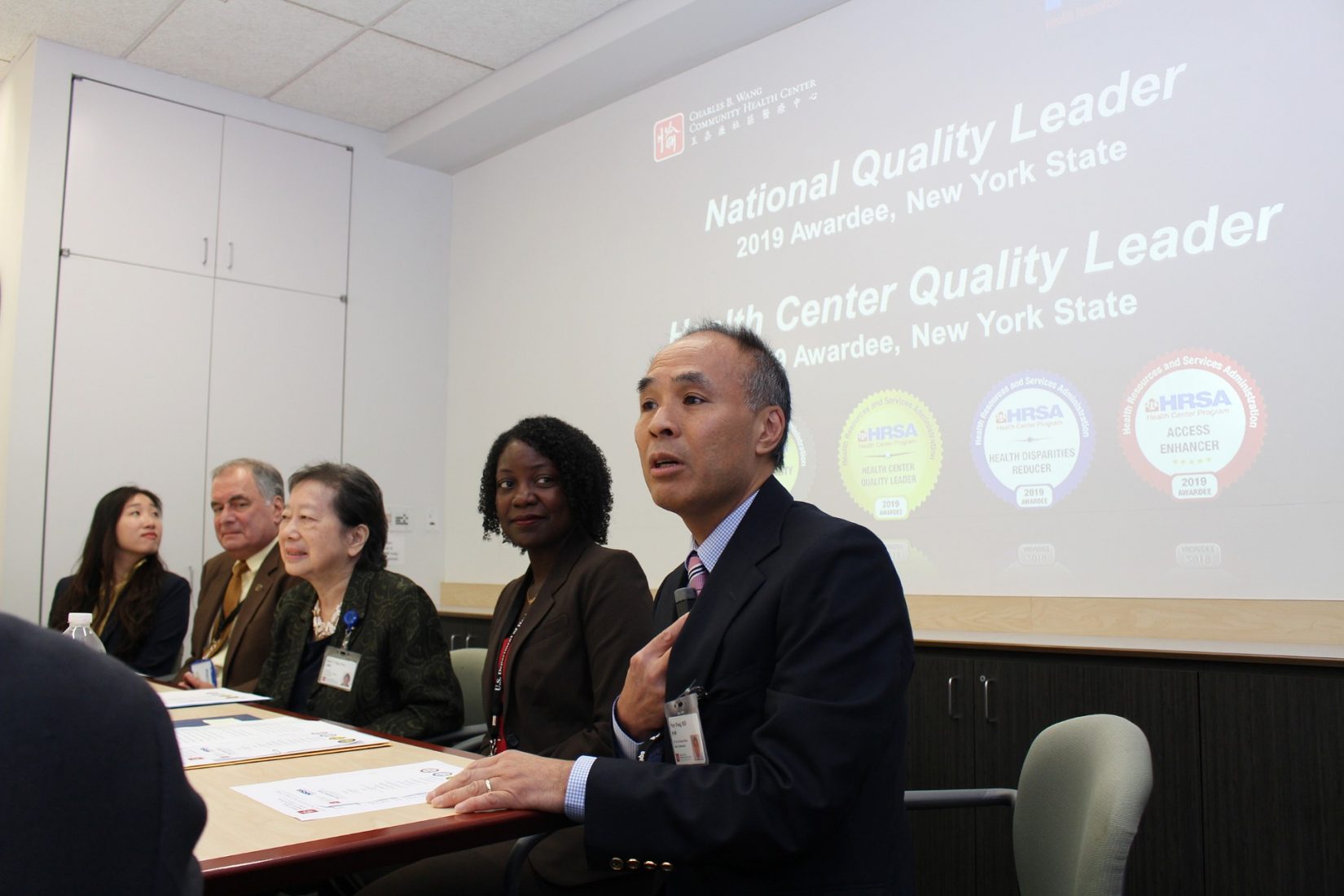Warning: Undefined array key "sharing_networks_networks_sorting" in /var/www/wp-content/plugins/monarch/monarch.php on line 3904
Warning: Trying to access array offset on value of type null in /var/www/wp-content/plugins/monarch/monarch.php on line 3904

The Charles B Wang Community Health Center, a Manhattan- and Queens-based nonprofit, held a press conference yesterday to celebrate recent administrative and quality-based victories in their mission to provide high-quality healthcare to their community. The CBWCHC was named a HRSA National Quality Leader for the fifth consecutive year, and the second consecutive year as the sole community health center recipient in New York State. They were awarded a total of $173,470 in Quality Improvement Awards, given to companies for providing effective preventative and life quality improvement treatment to their patients.
The CBWCHC is a fixture of NYC, with its five locations giving critical care to many of the city’s immigrants. The organization has an immigrant history itself, beginning in 1971 as a community-run health fair in Chinatown. Since then, it has grown to a 24-7 service provider with more than 61,000 patients in 2018.
CBWCHC’s award recognizes them as being in the top 1-2% of providers in diabetes and heart and clinical quality measures. Dr. Perry Pong, the executive vice president and chief medical officer, credits their success to CBW’s commitment to what he calls genuine care. “When you care one patient at a time,” he says, “you will achieve your goal of the patients coming back. You will achieve patient satisfaction, loyalty, you’ll have more visits, you would have more revenue because you show that you care. That’s the difference that we can make that only at a patient level but also to the community.”
The health center has special meaning for many of the board members and officials present for the press conference. Stephanie Cheng, a board member and patient, recounted how her family had relied on Charles B Wang since her childhood, when her family first arrived in the US and was unable to afford more expensive medical care options. “Not only did we come for annual checkups,” she told the assembled group, “they also provided resources to help my dad quit smoking and metro cards to get to have from the center and mental health services for my family members.”


